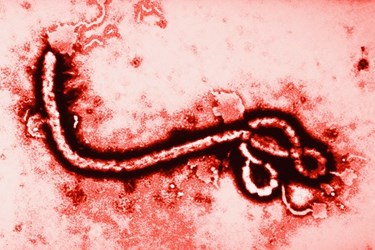Quick Ebola Diagnostic Device Developed By French Researchers
By Chuck Seegert, Ph.D.

A rapid Ebola test that can be administered at the point of care has been developed by the French Atomic Energy Commission (CEA). The test kit is analogous to a pregnancy test and requires only a drop or two of blood or urine to work.
The Ebola outbreak that originated in West Africa has started to test global public health defenses with cases arriving in the United States and Europe. To date, measures to contain the disease have been largely confined to questionnaires and testing travelers for fever. The absence of a rapid and effective test that can be administered at points of entry has been sorely felt.
While there are many initiatives to get a rapid Ebola test to the market, a new device from France may be the closest to actually achieving deployment. The new user-friendly kit is called eZYSCREEN, according to a recent article from Radio France International (RFI). Similar to a home pregnancy test, the standalone device takes less than 15 minutes to use and shows a positive result as a strip in a small window on the handheld device.
"Current tests, which are based on genetic detection of the virus, are highly sensitive but need special equipment, take between two and a quarter and two and a half hours and can only be carried out in a lab," the CEA explained in the RFI article.
The project was started in mid-August 2014 when only approximately 1,500 victims had been claimed by the disease. Through a herculean effort that built on previous Ebola research, the CEA team has brought the project to a point where they anticipate a clinical study to begin before the end of the month.
The device is built around monoclonal antibody technology and underwent testing at a high security laboratory in Lyon, France, according to an article from the Independent. The tests were conducted using the strain of Ebola virus that is currently being spread through Guinea, Sierra Leone, and Liberia. After regulatory approval, the test is anticipated to be manufactured by a French company called Vedalab. The company specializes in rapid diagnostic tests.
As the Ebola outbreak continues to build momentum, the World Health Organization projects that, if nothing is done, new cases could grow exponentially, reaching up to 10,000 cases per week by mid-November.
Other teams are diligently working on rapid Ebola test devices, including prototypes that use disposable cartridges and deliver results in less than 15 minutes. The outbreak has also occasioned the provisional use of unapproved test methods, and clinical testing of virus filtration technologies that also await final regulatory approval.
